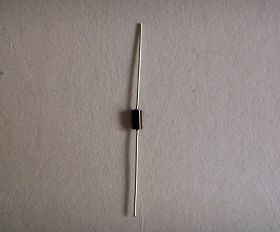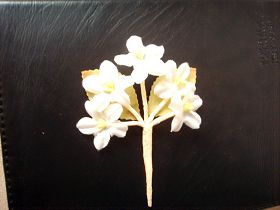Products Made by Slave Labor at Benxi Forced Labor Camp (Photos)
(Minghui.org) Besides being subjected to brainwashing and brutal physical torture, including the stretching bed torture, Falun Gong practitioners at Benxi Forced Labor Camp are forced to make products under slave labor conditions. While the forced labor camp authorities tax practitioners' physical strength and energy to the limit, the Chinese regime profits. The products of slave labor also provide the authorities with the funding to continue the persecution of Falun Gong practitioners. Below is a listing of products made, and materials used, under slave labor conditions at Benxi Forced Labor Camp.
1. Metal pellets
Behind the clean surface, tidy and luxurious surroundings of the exterior of Benxi Forced Labor Camp, lies an oppressive metal pellet production workshop. The pellet factory, owned by a private businessman, hires inmates from the forced labor camps. The labor camp profits from the illegal hiring out of detainees. The pellet workshop grinds ore to powder and then makes the powder into a shape, like a ball. Then they bake the pellets in a furnace. The pellets are then sent to Benxi Iron and Steel Group Company for further processing.
The workshop is located in the yard of the forced labor camp. It is a simple shed where inmates are forced to work in three eight-hour shifts, so the workshop is in continuous production. In the workshop, dust flies everywhere. Even two layers of masks cannot protect workers from the ore dust. After coming back from work, inmates' faces and bodies are black with the dust. Even their saliva is black.
Benxi Forced Labor Camp has no regard for the health or safety of its detainees. The authorities only think about the money they can make from the slave labor. Falun Gong practitioners who refuse to “transform” are sent to the pellet factory labor teams.
2. Hollow bricks
At present, nobody is living in the older buildings in Benxi Forced Labor Camp. They have been converted to a workshop used to produce bricks with hollow centers. The exercise ground in that area is piled with bricks. Falun Gong practitioners are forced to make those bricks.
3. Benzene
Benzene is a toxic chemical. The working conditions around the benzene do not meet basic health standards, and the health of those who have to work with the chemical is completely ignored.
4. Diodes
Falun Gong practitioners detained in the basement of the so-called “Legal Center” are forced to polish diodes with leather panels to supply Benxi Universe Electronics Co., Ltd. The dormitories were transformed into a temporary production workshop that were used to sleep inmates at night and then used as a workshop to polish the diodes during the day. Each diode is about 7-8 centimeters long. The diodes were picked up from the electroplating pool and then washed, but they still have a harmful chemical sticking to them.
Falun Gong practitioners have to polish 30 to 40 boxes of diodes each week, with each box weighing over ten kilograms. They are forced to polish diodes early in the morning, prior to attending the morning brainwashing sessions. In the afternoon and evening, they are forced to continue working again until after 9 p.m. before being allowed to go to bed. Each year, the labor of Falun Gong practitioners generated about 30,000 yuan for the labor camp.

Example of diode polished at Benxi Forced Labor Camp
5. Handmade silk flowers
When there was a shortage of diodes from the manufactures, officer Liu Shaoshi looked for other ways to make money. They had practitioners work on handmade silk flowers. These flowers were reportedly exported to Japan and South Korea.

A handmade silk flower made at Benxi Forced Labor Camp
Products made with forced labor at Dalian Forced Labor Camp
1. Polished diodes - both ends of the diodes have to be straightened on a board.
2. Toothpicks - good quality toothpicks have to be picked out of rough production.
3. Clothespins - springs are added to the plastic clips.
4. Beans - the beans have to be sorted by hand.
5. Seaweed knots - long pieces of seaweed are first cut into thin stripes, then cut into ten-centimeter pieces and tied into a knot. They are then sent to the market to be sold.
6. Fired brick - Team 1 in Dalian Forced Labor Camp produces bricks. Brick kilns are used to fire the bricks.
Products made under slave labor conditions at Dalian Detention Center
1. Boxes used to package moon cakes.